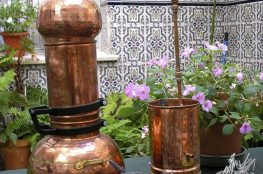I spent last weekend in Chicago talking with almost 500 women about aromatherapy. It was a great opportunity to find out what women think about aromatherapy, their concerns, needs and issues. A few things clearly stood out to me, one of them was about essential oil usage. I often as an aromatherapist get asked usage and safety questions. I thought this month it would be good to answer some of those questions for you all.
How long can I diffuse essential oils in my diffuser?
Inhalation using a diffuser can be very powerful and effective. It is estimated that as much as 60-70% of the molecules in an essential oil can be adsorbed into the body. I recommend that you not diffuse more than 30-60 minutes at a time. I always advise people to get a diffuser that has an intermittent button and timer. For example, you can diffuse for 60 min., where your diffuser goes on for 5 sec, then off for 5 sec. It will do this the entire time you diffuse. It is a great way to control how much essential oil is being emitted into the air. A timer allows it to turn off even if you are not in the room, or if you are sleeping at night.
An indication that you are diffusing too much could be headaches, light-headedness, trouble breathing. If you experience any of these you should turn off the diffuser and move to a room with fresh air.
In a cold air diffuser I usually recommend (for adults) starting with 3-5 drops of essential oil. You can add EO if you desire a stronger aroma, but never more than a total of 10 drops. Essential oils have what is referred to as a low therapeutic margin. This means there is a fine line between a beneficial dose and a toxic dose. It is always good to begin at a lower amount and work your way up.
How do I store my essential oils?
Essential oils are “volatile”; meaning that they can easily evaporate at room temperature. More importantly, heat, light and oxygen can cause evaporation and degradation (break down), rendering them useless. Because of these factors, essential oils should be stored in a cool, dark area. Preferably in a dark, glass container. Citrus oils- high in Terpenes-tend to spoil the quickest, so placing them in a refrigerator will help prolong the shelf life of the oil. A separate small refrigerator for all your essential oils is really the best way to go. On a final note, If your essential oil comes in a large quantity, it may be worth aliquoting it into smaller bottles to reduce unnecessary exposure.
Why do I need to Dilute?
Why do you need to dilute? Dilution is important because essential oils can cause irritation, sensitivity, redness, blisters and itching when used undiluted. For many of you out there I am sure you are thinking it’s natural, it must be safe. Essential oils can be effective and safe, BUT, when used in the correct way. Take for example that it can take as many as 3,000 lemons to produce 1 kilo of lemon essential oil. That is something like 45 lemons in 1-15ml bottle of essential oil-that my friend is a lot of lemons! Lemon essential oil is also known to be phototoxic (can cause sensitivity to the sun). Now try putting on 1-undiluted drop onto your skin and then go out in the sun-ouch. For further info on dermal reactions visit NAHA’s Safety page. For guidelines on dilution, visit their NAHA’s Methods of Application page or AromaWeb’s Guide to Diluting Essential Oils.
References for this blog and for further information on essential oil safety :
Tisserand, Robert. Essential Oil Safety: 2nd Edition, Elsevier, 2014.
Petersen, Dorene. Introduction to Aromatherapy. American College of Healthcare Sciences, 2012.
http://naha.org/explore-aromatherapy/safety/

